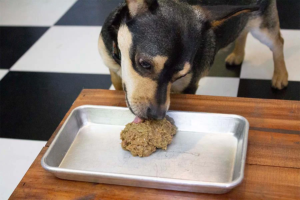
Dog training over the centuries has evolved. Once, when dog training was left to the professionals, and the dog showed the world. Now, it’s a key tool provided to professionals and family members alike. As humans, our relationship with dogs is one that’s centuries old. One that’s ever-changing, as we learn more about our canine companions. A good set of Houston dog training sessions can be all you need to bring out your pooch full potential.
- Emphasis on People
In the past trainers have focused on the dog. How the dog learns, how the dog adjusts to particular situations. Now, trainers are finding ways to incorporate the owner. Lead trainers are starting to notice a pattern in their clients. The ones that work with their dogs at home succeed. The ones that can’t or don’t understand how to work at home, have a harder time.
So, as a way to make the training successful for everyone. Trainers are involving the owner’s learning styles, patterns, and techniques into their canines training.
- Play Behavior
Knowing how your dog interacts and plays with other dogs was once thought to be enjoyable and fun. Now, trainers are learning that those interactions reveal not only the dog’s learning style (are they dominant, submissives, confident, etc). Play successions are relieving behavior issues. Trainers have begun to focus more on play behavior to help them with training techniques.
Does the dog have a short attention span? Does the dog get distracted easily around other dogs or animals? Do they have confidence issues? All of these are behaviors that can be seen during a play session.
- Dominance based training
The days of dominance-based training have closed. Today, trainers are focusing on positive reinforcement. As a new batch of dog trainers enter into the work field, we are seeing fewer and fewer trainers that use dominance-based training. Some don’t even know the techniques in the first place.
- Science-based training
Over the last several years, science-based training has been on the rise. These numbers continue to rise as more trainers with scientific backgrounds emphasize critical thinking skills. This skill allows a trainer to distinguish between opinions and scientific facts.
Science-based dog training is putting the trainer’s thoughts into a dog’s mind. In turn, it’s thinking like a dog. It’s removing the human emotions from dog training and training the way another dog may train their puppy.
- Training as a profession
The days of your dog trainer being the guy down the street that breeds is gone. Now, most trainers have left their full-time jobs, and focus solely on training. Because of this cross over, trainers have brought in a more professional aspect to the training world.
- Focus on the overall dog
Trainers have been branching out from focusing solely on the dogs respond to commands. Instead, they have focused on creating an overall rounded family member. Trainers no longer are there for training, but also give advice on grooming, nutrition, veterinary recommendations, and exercise. Trainers have become and jack of all trades for the dog world.
- Family dog
Training used to be solely based on competition training. Now, pet owners are seeking help with their dog, or puppy. Transforming how trainers approach a client. This family dog doesn’t need to have a killer heel, and the owner may not have the time to dedicate to intense training sessions. So Trainers have to adjust to the needs of their clients.
The days of intensive, long Houston dog training sessions are gone. Trainers have to focus more on a well-rounded family dog. These Houston dog training sessions are more based on educating.



